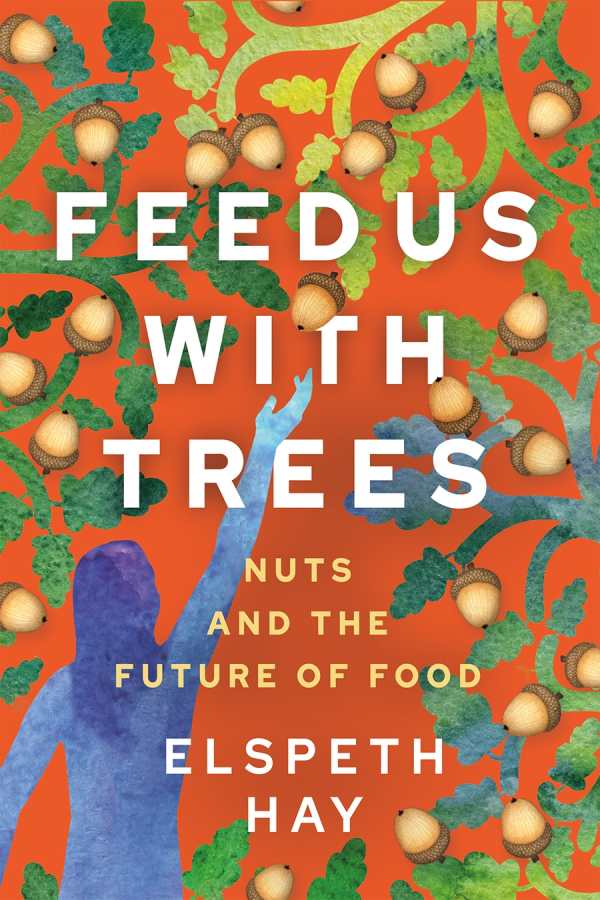Feed Us with Trees
Nuts and the Future of Food
Feed Us with Trees is Elspeth Hay’s measured, engrossing exploration of nut trees as significant food sources, connecting sweeping concepts in world history, environmental studies, and agronomy.
Unpacking food myths, the book explains how European and North American farming and land ownership evolved. Before humans were farmers, it says, food was harvested from intact ecosystems, with nut trees as keystone ecological species. While monocultures of grains dominate modern agriculture, their growth is reliant on pesticides, herbicides, and fertilizer, which degrades soil health, insect life, and wildlife habitats, endangering humans and animals around the globe.
Suggesting ways to restore balance with thoughtful, positive passages about reinstituting human roles as careful manipulators of fire and guardians of forest health, the book says that nuts should be features on contemporary dinner plates. When planning future diets, it asserts, people should consider acorns, chestnuts, and other tree nuts.
Examining a bevy of subjects, including Hay’s enthusiastic experimentation with tree cultivation, acorn processing, and gardening, as well as historical trends, the prose is lively and global, anchoring macroconcepts in personal examples. Northern California, Italy, and Cape Cod are among the locales that proffer lessons in basket weaving, fire fighting, Indigenous foodways, and traditional nut harvesting and processing. A visit to the New Forest managed commons in England is complemented by the intriguing, tragic history of the loss of common lands and of elite control of European labor forces from the Middle Ages through the early twentieth century. That these social processes were repeated by American settlers toward Indigenous, brown, and Black people provokes painful, thoughtful reexaminations of commonly held ideals. Illuminating illustrations, maps, and photographs add informative visual breaks from the large-scale ideas of the prose.
Feed Us with Trees is a hopeful analysis of food culture with numerous positive ideas for the future.
Reviewed by
Rachel Jagareski
Disclosure: This article is not an endorsement, but a review. The publisher of this book provided free copies of the book to have their book reviewed by a professional reviewer. No fee was paid by the publisher for this review. Foreword Reviews only recommends books that we love. Foreword Magazine, Inc. is disclosing this in accordance with the Federal Trade Commission’s 16 CFR, Part 255.

